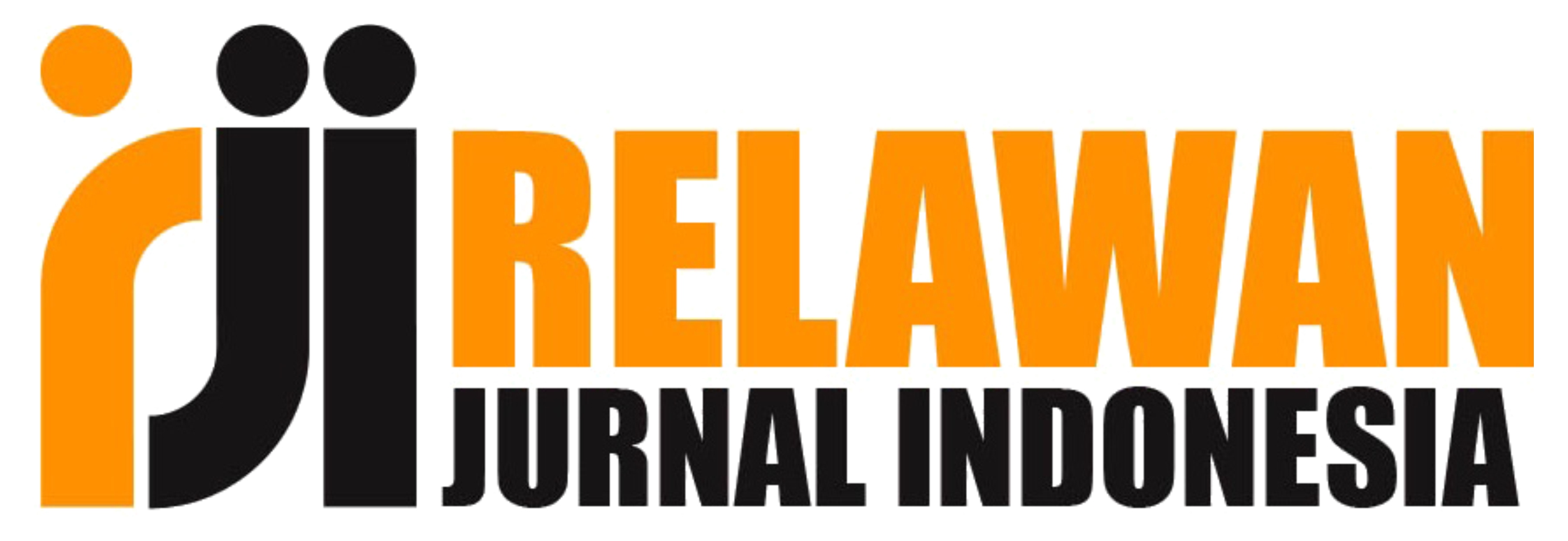Etika dalam Pendidikan Politik (menghadapi bias dan propaganda)
DOI:
https://doi.org/10.61476/4mdpy810Keywords:
polit, Political Education, Political ParticipationAbstract
This study aims to analyze Ethical Issues in political education as one of the important aspects in shaping public awareness and participation in a Democratic system. However, ethical issues in political education are often overlooked. In this context, it is important to identify ethical values that should underline the practice of political education. The impact of Bias and Propaganda in political education can be very detrimental, not only to individuals, but also to society as a whole. Bias in education can create a false understanding of political issues and reduce an individual's ability to actively participate in the democratic process. This study uses a mixed approach, combining qualitative and quantitative methods. This mixed approach was chosen to provide a deeper understanding of the phenomenon of bias and propaganda in political education. By combining both methods, researcher can obtain more comprehensive and valid.
References
Allcott, H., & Gentzkow, M . (2017). "Social Media and Fake News in the 2016 Election." “Journal of Economic Perspectives”.
American Educational Research Association. (2023). “Training Educators for Critical Thinking in Political Education”.
Arifin, M. (2022). Validitas dan Reliabilitas Kuesioner dalam Penelitian Sosial. Jurnal Metodologi Penelitian.
Badan Pusat Statistik. (2022). Statistik Pemilih Pemilu.
Badan Pusat Statistik. (2022). Statistik Pemilu dan Partisipasi Politik di Indonesia.
Badan Pusat Statistik. (2023). Statistik Pendidikan Tinggi. Jakarta: BPS.
Creswell, J. W. (2014). Research Design : Qualitative, Quantitative, and Mixed Methods Approaches. SAGE Publications.
Dahl, R. A. (1998). “On Democracy”. Yale University Press.
Delli Carpini, M. X. (2020). The Role of Media in Shaping Political Knowledge. Journal of Political Communication.
Delli Carpini, M. X., & Keeter, S. (1996). “What Americans Know About Politics and Why It Matters”. Yale University Press.
Dewey, J. (2023). “Meia Literacy in the Digital Age”. Journal of Educational Technology.
Digital Civil Societ Lab. (2021). "Technology and Civic Engagement : A Study of Youth
Educational Testing Service. (2022). "Assessing the Impact of Civic Education”.
Freedom House. (2021). Freedom on the Net 2021: The Intersection of Social Media and Politics.
Field, A. (2018). Discovering Statistics Using IBM SPSS Statistics. SAGE Publications.
Gallup. (2021). “The State of Education in America”. Gallup.
Hautamäki, J. (2020). "Education for Democracy: The Finnish Model”. Journal of Educational Research.
Hattie, J. (2019). Visible Learning : A Synthesis of Over 800 Meta-Analyses Relating to Achievement. Routledge.
International IDEA. (2021). "Democracy and Diversity: A Global Perspective International Society for Technology in Education (ISTE). (2020). ISTE Standards for Educators.
Institute for Strategic Dialogue. (2022). "The Impact of Political Propaganda on Public Perception” . Retrieved (https://www.isdglobal.org).
Johnson, R. B., & Onwuegbuzie, A. J. (2004). Mixed Methods Research : A Research Paradigm Whose Time Has Come. Educational Researcher, 33(7), 14-26.
Jones, A. (2022). “The Impact of Political Propaganda in Education”. Educational Research Review.
Kahne, J., & Bowyer, B. (2017). "Educating for Civic Reasoning." “Harvard Education Press”.
Kementerian Komunikasi dan Informatika Republik Indonesia. (2019). Laporan Penelitian: Pengaruh Media Sosial terhadap Pemilih di Pemilu 2019.
Kementerian Pendidikan dan Kebudaaan Republik Indonesia. (2021). Pedoman Etika Penelitian.
Kementeria Pendidikan dan Kebudayaan Republik Indonesia. (2022). Data Perguruan Tinggi. Jakarta: Kemdikbud.
Knight Foundation. (2022). "Ethics in Communication : A Study on Student Perspectives." Retrieved from [Knight Foundation website](https://www.knightfoundation.org).
Kurniawan, B. (2023). Dampak Pendidikan Politik Bias terhadap Sikap Siswa. Jurnal Ilmu Sosial.
KPU. (2022). Laporan Survei Persepsi Publik Terhadap Pendidikan Politik. Komisi Pemilihan Umum Republik Indonesia.
Lestari, D. (2023). Media Sosial dan Pengaruhnya Terhadap Pandangan Politik Masyarakat. Jurnal Komunikasi.
Lippmann, W. (2020). "Public Opinion and the Role of Bias in Political Education.
Lodge, M., & Taber, C. S. (2013). “The Automaticity of Affect for Political Leaders: Implications for the Study of Political Judgment”. Political Psychology, 34(3), 481-503.
Mandela, N. (1994). Long Walk to Freedom. Boston : Little, Brown, and Company.
McCaffrey, K. (2022). "Teaching Media Literacy : Recognizing Bias and Propaganda in News.
MediaSmarts. (2021). "Media Literacy : Understanding Propaganda." Retrieved from [MediaSmarts website](https://mediasmarts.ca).
National Council for the Social Studies. (2021). "Teaching Social Studies : The Role of Bias in Education." Retrieved from [NCSS website](https://www.socialstudies.org).
National Education Association (NEA). (2021). Code of Ethics of the Education Profession.
National Education Association. (2023). “Student Perspectives on Political Education”.
Norris, P. (2018). The Democratic Phoenix : Reinventing Political Activism. Cambridge University Press.
Organisation for Economic Co-operation and Development (OECD). (2021). Learning in the Digital Age: A Guide for Educators.
Pew Research Center. (2021). The Future of News : How Social Media is Changing Journalism.
Pew Research Center. (2021). The Future of Truth and Misinformation Online.
Pew Research Center. (2021). "The State of News Media”.
Pew Research Center. (2021). The Future of News: A Survey of Journalists and the Public.
Pew Research Center. (2021). "The Role of Education in Political Socialization”.
Pew Research Center. (2021). "Political Advertising in the 2020 Election: A Study of Misinformation." Retrieved from [Pew Research website](https://www.pewresearch.org).
Pew Research Center. (2022). “Political Bias in Education: A Study”.
Pew Research Center. (2022). The Polarization of Political Views: A Study of the American Public.
Prasetyo, A. (2021). Sejarah dan Pendidikan Politik di Indonesia. Jurnal Pendidikan, 12(3), 45-60.
Pusat Penelitian Media dan Komunikasi. (2023). Pengaruh Media Sosial terhadap Pendidikan Politik.
Purwanto, A. (2021). Metodologi Penelitian Sosial. Yogyakarta : Penerbit Andi.
Rizki, M. (2023). Keterampilan Berpikir Kritis dalam Pendidikan Politik. Jurnal Pendidikan dan Kebudayaan, 15(1), 78-90.
Rawls, John. A Theory of Justie, Cambridge, Mass: Harvard University Press, 1971.
Sari, R. (2021). Materi Ajar Politik dan Politisasi Pemuda: Studi Kasus di Sekolah Menengah. Jurnal Pendidikan Politik, 12(2), 123-135.
Sari, R. (2022). Pendidikan Politik dan Pengarunya Terhadap Mahasiswa. Jurnal Pendidikan dan Politik, 5(2), 145-160.
Sen, Amartya Kumar. 2000. Development as Freedom. New York:Anchor Books.
Smith, A. (2022). "The Role of Social Media in Political Engagement Amon Young Voters." “Journal of Political Communication”, 39(1), 35-52.
Smith, J., & Jones, R. (2022). Bias dalam Kurikulum Pendidikan Politik. Journal of Political Education, 8(4), 220-235.
Smith, J. (2022). The Impact of Politica l Propaganda on Youth Engagement. Journal of Political Education.
Smith, R. (2023). “Revising Political Curriculum: A Global Perspective”. International Journal of Educational Policy.
Stanford University. (2023). “The Effects of Bias in Political Education on Student Perspectives”.
Sugiyono. (2020). Metode Penelitian Pendidikan. Bandung: Alfabeta.
Sugiyono. (2021). Metode Penelitian Kuantitatif, Kualitatif, dan R&D. Bandung: Alfabeta.
The American Association of Colleges for Teacher Education. (2021). "Ethical TeachingPractices in Political Education." Retrieved from [AACTE website](https://www.aacte.org).
Transparency International. (2021). "Global Corruption Barometer."The Center for Information & Research on Civic Learning and Engagement (2021). "Student Involvement in Curriculum Evaluation." Retrieved from [CIRCLE website](https://www.civiced.org).
United Nations Development Programme. (2020). Human Development Report 2020.
UNESCO. (2020). "Education for Sustainable Development Goals: Learning Objectives."
UNESCO. (2021). “Education for Democracy: A Global Perspective”.
Widodo, Y. (2023). Etika dalam Pendidikan Politik. Jurnal Etika dan Pendidikan, 5(2), 15-30.
World Bank. (2022). Corruption and Development: A Review of Evidence.
Zaller, J. (1992). The Nature and Origins of Mass Opinion. Cambridge University Press.
Published
Issue
Section
License
Copyright (c) 2024 Efi Susilawati, Heri Kurnia (Author)

This work is licensed under a Creative Commons Attribution-ShareAlike 4.0 International License.












